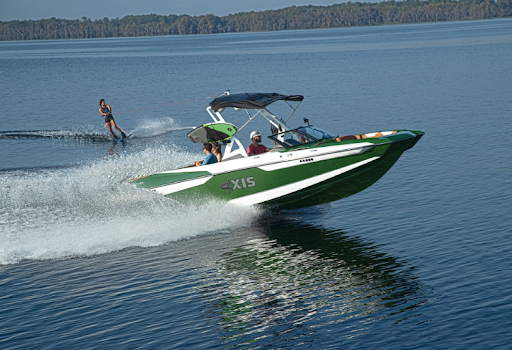Introduction
When it comes to towing a boat, knowing the speed limits is crucial for safety and legality. Whether you're headed to the lake for a weekend getaway or embarking on a fishing expedition, understanding the limits of towing speed ensures a smooth journey. In this guide, Our boat towing Daytona beach fl explores the factors that influence towing speeds and how to stay within safe limits while towing your boat with Flagship Towing.
Understanding Towing Speed Limits
Factors Influencing Towing Speeds
Vehicle Specifications: The towing capacity of your vehicle plays a significant role in determining safe towing speeds. Exceeding the manufacturer's recommended towing capacity can lead to instability and increased stopping distances.
Road Conditions: Factors such as terrain, weather, and road surface impact towing safety. It's essential to adjust your speed accordingly, especially when encountering adverse conditions like rain, snow, or steep inclines.
Trailer Type and Load Distribution: Properly distributing the weight of your boat and trailer is crucial for maintaining stability while towing. Improper weight distribution can affect handling and increase the risk of accidents, especially at higher speeds.
Recommended Towing Speeds
While towing a boat with Flagship Towing, it's recommended to adhere to the following guidelines:
Highways and Freeways: In most jurisdictions, the maximum towing speed limit on highways and freeways ranges from 55 to 65 miles per hour. However, it's advisable to maintain a lower speed, especially when navigating curves or windy conditions.
Urban Areas: When towing through urban areas or residential neighborhoods, reduce your speed to ensure better maneuverability and response time to unexpected hazards.
Mountainous Terrain: When towing through mountainous regions or steep grades, reduce your speed to maintain control and prevent brake overheating.
Adverse Weather Conditions: During inclement weather, reduce your speed and increase following distances to account for reduced traction and visibility.
Safety Tips for Towing a Boat
Check Your Equipment: Before hitting the road, ensure that your towing vehicle, trailer, hitch, and safety chains are in good condition and properly secured.
Practice Safe Driving Habits: Avoid sudden maneuvers, such as sharp turns or abrupt stops, while towing a boat. Gradually accelerate and decelerate to minimize strain on your vehicle and trailer.
Monitor Tire Pressure: Keep an eye on tire pressure, as underinflated tires can compromise stability and fuel efficiency while towing.
Stay Informed: Familiarize yourself with local towing regulations and restrictions before embarking on your journey. Compliance with speed limits and other traffic laws is essential for safe and legal towing.
Conclusion
Towing a boat with Flagship Towing offers the opportunity for memorable adventures on the water. By understanding towing speed limits and practicing safe driving habits, you can enjoy a smooth and stress-free towing experience while ensuring the safety of yourself and others on the road. Remember, it's not just about how fast you can go—it's about how safely you can get there.

